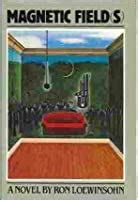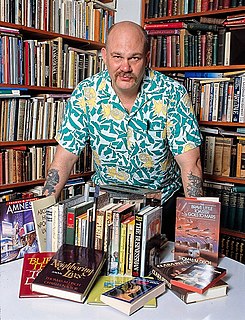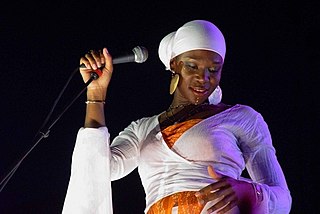A Quote by Roger Scruton
I've always taken the view that works of art are not just things that we enjoy. They can convey truths about the world more vividly and to greater effect than ordinary philosophical prose can because they don't just deal in ideas but show the emotional reality of them.
Related Quotes
Art keeps its newness because it's at once unforgettable and impossible to remember entirely. Art is too volatile, multiple and evaporative to hold on to. It's more chemical reaction, one you have to re-create each time, than a substance. Art's discoveries are also, almost always, counter to ordinary truths.
Today we cannot assume people, even all Christians, understand the Bible's implicit, underlying view of reality. We have to dig it out and show it to people, including Christians, and ask them to "see reality as this" rather than "as that" - where "that" refers to any number of unbiblical ideas about reality.
There are more ideas on earth than intellectuals imagine. And these ideas are more active, stronger, more resistant, more passionate than "politicians" think. We have to be there at the birth of ideas, the bursting outward of their force: not in books expressing them, but in events manifesting this force, in struggles carried on around ideas, for or against them. Ideas do not rule the world. But it is because the world has ideas (and because it constantly produces them) that it is not passively ruled by those who are its leaders or those who would like to teach it, once and for all, what it must think.
One of my friends started a company in 1997, seven years before Facebook, called SocialNet. And they had all these ideas, and you could be, like, a cat, and I'd be a dog on the Internet, and we'd have this virtual reality, and we would just not be ourselves. That didn't work because reality always works better than any fake version of it.
I now wish that I had spent somewhat more of my life with verse. This is not because I fear having missed out on truths that are incapable of statement in prose. There are no such truths; there is nothing about death that Swinburne and Landor knew but Epicurus and Heidegger failed to grasp. Rather, it is because I would have lived more fully if I had been able to rattle off more old chestnuts?—?just as I would have if I had made more close friends.
Once we have taken the backward step to an abstract view of our whole system of beliefs, evidence, and justification, and seen that it works only, despite its pretensions, by taking the world largely for granted, we are not in a position to contrast all these appearances with an alternative reality. We cannot shed our ordinary responses, and if we could it would leave us with no means of conceiving a reality of any kind.
The forest stretched on seemingly forever with the most monotonous predictability, each tree just like the next - trunk, branches, leaves; trunk, branches, leaves. Of course a tree would have taken a different view of the matter. We all tend to see the way others are alike and how we differ, and it's probably just as well we do, since that prevents a great deal of confusion. But perhaps we should remind ourselves from time to time that ours is a very partial view, and that the world is full of a great deal more variety than we ever manage to take in.
The difference between ordinary and extra-ordinary is so often just simply that little word - extra. And for me, I had always grown up with the belief that if someone succeeds it is because they are brilliant or talented or just better than me... and the more of these words I heard the smaller I always felt! But the truth is often very different... and for me to learn that ordinary me can achieve something extra-ordinary by giving that little bit extra, when everyone else gives up, meant the world to me and I really clung to it.
I started dealing with my emotional pain by writing. I always had been a writer, but just not songs. Saying things on paper that I would never, ever say, and saying things to myself, admitting things to myself, about myself and my personality, just putting it on paper, is how I deal with emotional pain.
I have enough friends who are gamers. I actually enjoy watching them play because of the visuals and the storytelling of the games. I just love being able to go on an adventure and games are just so sophisticated now that you can just get lost in a world for 20 hours and just be someone else in a very visceral, emotional way. And that's just fascinating.









































